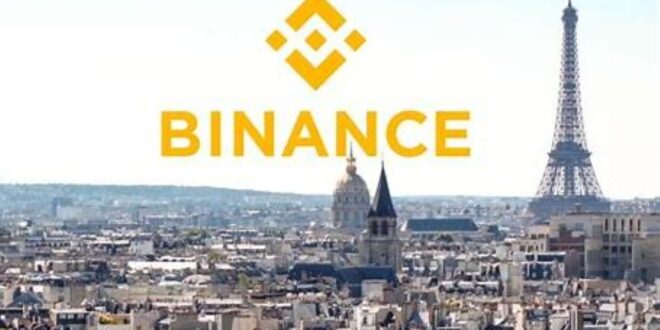In a significant development for the cryptocurrency industry, French authorities have launched a formal investigation into Binance, the world’s largest cryptocurrency exchange, over alleged money laundering activities. The investigation comes as regulators worldwide are increasing scrutiny on the crypto industry, particularly in regard to compliance with anti-money laundering (AML) regulations and other financial laws.
The Investigation and Its Implications
The French National Financial Prosecutor’s Office (PNF) confirmed that it has opened an official probe into Binance, following concerns raised by various financial watchdogs regarding potential violations of AML and Know-Your-Customer (KYC) requirements. The investigation will focus on whether Binance has facilitated illicit transactions through its platform, which allows users to buy, sell, and trade a wide range of cryptocurrencies.
This investigation is the latest in a series of regulatory challenges Binance has faced across the globe. In recent years, the exchange has been under investigation or scrutiny by authorities in multiple countries, including the United States, the United Kingdom, Japan, and Germany, all of which have raised concerns about Binance’s operations and its compliance with local financial laws.
Binance’s Response to the Probe
Binance has expressed its commitment to fully cooperating with French authorities and resolving any potential issues related to its operations in the country. A spokesperson for the exchange stated, “We take these matters seriously and are fully committed to ensuring compliance with all applicable laws and regulations in the jurisdictions where we operate.”
The company has also pointed to its ongoing efforts to enhance its compliance procedures, including the implementation of stricter KYC and AML protocols. Binance has been actively working to establish better relationships with regulators and to improve its risk management and compliance systems as part of a broader effort to expand its presence in regulated markets.
A Growing Wave of Regulatory Scrutiny
The probe into Binance by French authorities is part of a broader trend of increased regulatory scrutiny on cryptocurrency exchanges worldwide. Over the past few years, governments and financial regulators have ramped up efforts to monitor and regulate the crypto space, with concerns about money laundering, terrorist financing, and investor protection driving much of the attention.
In particular, the rise of decentralized finance (DeFi), unregulated tokens, and the growing use of cryptocurrency in illicit activities has prompted regulators to take action. Binance, due to its global reach and dominant market position, has become a focal point for these concerns. Many regulators have expressed frustration over the perceived lack of transparency and cooperation from the exchange when it comes to compliance with local laws.
For Binance, this growing regulatory pressure has meant that the company has had to navigate complex legal and financial challenges. In response, Binance has introduced a series of changes, including the hiring of new compliance officers, implementing more robust identity verification processes, and making changes to its operations in certain jurisdictions to better align with regulatory expectations.
What’s at Stake for Binance?
The outcome of the French investigation could have significant implications for Binance. If French authorities find that Binance has violated AML laws or facilitated money laundering, the exchange could face hefty fines or even potential restrictions on its ability to operate in France. This could have a broader ripple effect on Binance’s operations in other European Union countries, potentially triggering additional scrutiny and regulatory action.
The case also highlights the growing challenges facing cryptocurrency exchanges as they attempt to balance business growth with regulatory compliance. While the global crypto market has seen rapid expansion, exchanges like Binance are increasingly having to deal with the reality of operating in a highly regulated environment.
The Broader Impact on the Crypto Industry
The investigation into Binance could also have broader implications for the cryptocurrency industry as a whole. If regulatory bodies take more aggressive stances toward exchanges, it could lead to heightened compliance standards across the sector, which might result in increased costs for crypto firms. On the other hand, tighter regulations could help bring more legitimacy to the industry, fostering greater institutional interest and long-term growth.
However, increased scrutiny could also push some crypto exchanges and platforms to reconsider their operations, potentially prompting them to relocate to more favorable regulatory environments. This could lead to a shift in the geographic distribution of the crypto industry, with certain countries and regions gaining prominence as crypto-friendly hubs.
Will Binance Navigate the Regulatory Storm?
As the French investigation unfolds, Binance’s ability to navigate regulatory hurdles will be closely watched by the entire cryptocurrency industry. The exchange’s future in Europe could hinge on its ability to address concerns raised by regulators and to demonstrate its commitment to compliance.
In the meantime, Binance will likely continue to face growing regulatory challenges around the world. How it responds to these challenges will have a significant impact on its ability to maintain its status as the leading cryptocurrency exchange globally. The crypto world is waiting to see if Binance can successfully address these concerns and emerge stronger from the regulatory storm.
 Business Sandesh Indian Newspaper | Articles | Opinion Pieces | Research Studies | Findings & News | Sandesh News
Business Sandesh Indian Newspaper | Articles | Opinion Pieces | Research Studies | Findings & News | Sandesh News



